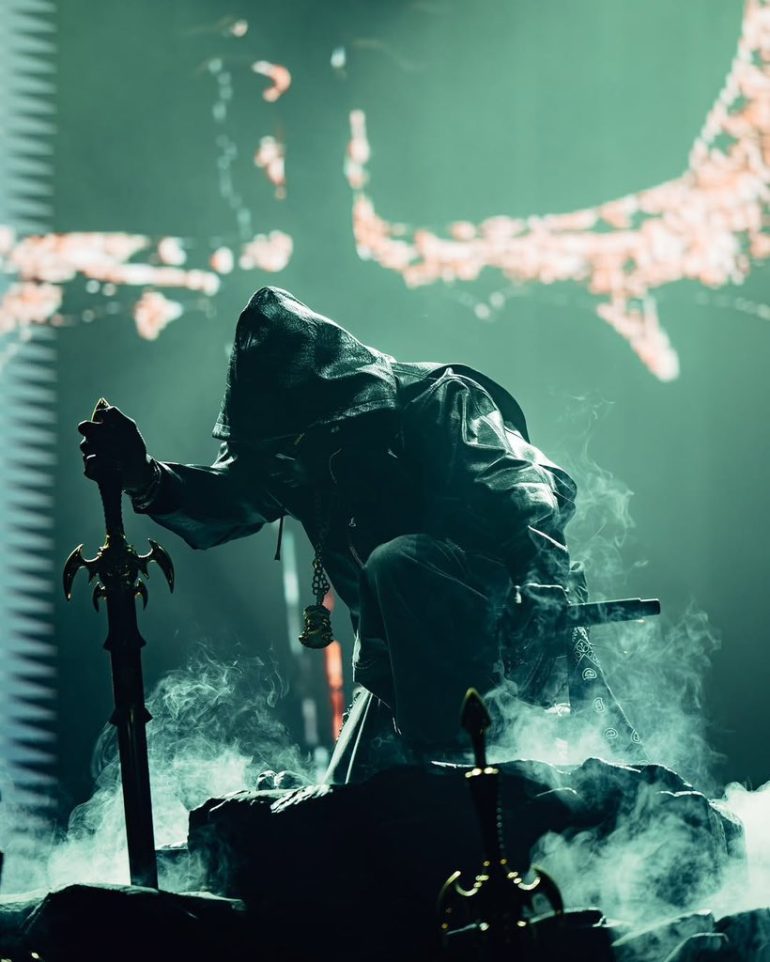Barely a decade separates Rema’s first upload on Benin City Wi-Fi from the 19,500 beating hearts he marshalled inside Madison Square Garden. Yet on that warm Friday night he did more than tick a box on the HEIS World Tour itinerary—he rewired Afrobeats’ hierarchy, staring down the canonised “Big Three” (Wizkid, Davido, Burna Boy) and spitting a new arithmetic: “No more Big 3, there’s now a Big 4.”
The stagecraft of a coup
Mid-set, three towering mannequins—likenesses of the genre’s entrenched monarchs—pivoted under spotlights. A fourth, cloaked until the beat switch into “HeHeHe”, unfurled to reveal Rema himself, gold-leafed and grinning. The symbolism was blunt, almost cheeky: a living man declaring his bronze bust already cast. The Garden roared, phones shot skyward, and on X, the clip detonated minutes later.
Context: why the maths ever mattered
Afrobeats journalists coined “Big Three” after the 2010s export boom: Wizkid globalised the Lagos sound, Davido weaponised melody for pop radio, Burna Boy gave it arena heft—culminating in his own MSG takeover in 2022, the first Nigerian to do so. The label froze a living form in amber, ignoring the data avalanche that followed:
- “Calm Down” becoming the first African-led track to cross a billion Spotify streams.
- Rema, at 24, landing the first African cover of Rolling Stone US.
- A world tour routing that treats MSG, The O2 and Accor Arena as mere dots on a 23-city hop.
Numbers alone don’t confer dynasty status, but they shift the Overton window. When an artist younger than some of his idols’ catalogues sells out the same rooms, the pantheon creaks.
Generational theatre
Rema’s proclamation worked because it was theatrical and empirically defensible. He is the genre’s first true Gen-Z ambassador: raised on trap and K-pop forums, fluent in meme syntax, spiritually allergic to gatekeeping. By planting himself beside the earlier triad he wasn’t begging admission; he was updating firmware.
Madison Square Garden amplified the stunt. The venue—once a rite of passage for rock gods—has become Afrobeats’ baptismal font: Burna Boy christened it, now Rema bends it to a Gen-Z mythos, turning his 25th-birthday week into a coronation. Even the venue plaque handed to him post-show felt less like a souvenir, more like institutional consent.
Echoes beyond the room
Within hours, Nigerian timelines split: purists cried “premature canonisation”, while younger fans posted Mt. Rushmore edits, Rema’s dread-tipped bust chiselled beside his elders. Indian and Latin fan pages—fresh from “Calm Down” fever—joined the fray, evidence that Afrobeats’ battlefield is now truly global.
Industry suits, ever pragmatic, saw the headlines and recalculated tour offers. A handful of summer European festivals quietly upped Rema’s font size on the poster. Brands watching ticket velocity at MSG—rescheduled to 2 May 2025 after a Knicks playoff scare—started drafting bigger cheques.
What the proclamation doesn’t erase
None of this demotes the pioneers. Wizkid’s minimalist cool, Davido’s melodic juggernaut and Burna’s pan-African militancy remain unmoved. Rema’s gambit simply stretches the frame—much like Nas did to Rakim’s era, or Kendrick to the East-Coast trinity. In popular music, thrones add cushions before they retire kings.
Closing riff
Afrobeats evolved because its architects refused polite deference. Rema, that night, embodied the genre’s founding sin: audacity. He looked at the Garden’s vaulted ceiling—same roof that once framed Michael Jackson, Jay-Z, Led Zeppelin—and counted four pillars where three stood. Then, with a shrug and a chant, he made room for himself. History didn’t argue; it danced.


